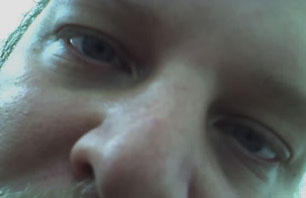 Let's all raise a toast.
Let's all raise a toast.I've read articles before on the era of Prohibition, and the damage that social do-gooders and Christian idealists did to America.
Black market alcohol was of dubious origin, unregulated by market forces. The price premium that attaches to banned substances made the alcohol that made it to consumers more potent and more dangerous. And, of course, organized crime rose and flourished thanks to the new market created by the 18th Amendment and the Volstead Act.
So hospitalizations related to alcohol soared. And so did violent crime. Corruption flourished, as law enforcement officials in charge of enforcing prohibition went on the take, from beat cops all the way up to the office of the United States Attorney General. Even the U.S. Senate had a secret, illegal stash of booze for its members and their staffs.
 I remember a comment by one sociologist that Prohibition's biggest damage to America was that it was a huge blow to respect for the rule of law. Before Prohibition, all Americans — law-abiding and criminal — were cognizant of the moral, social, and personal repercussions of making a conscious decision to engage in an illegal activity. After Prohibition, the concept of "breaking the law a little" was born, and the creation of a gray area between the legal and the illegal created of Americans a vast population of casual scofflaws for whose actions there existed virtually no legal repercussions.
I remember a comment by one sociologist that Prohibition's biggest damage to America was that it was a huge blow to respect for the rule of law. Before Prohibition, all Americans — law-abiding and criminal — were cognizant of the moral, social, and personal repercussions of making a conscious decision to engage in an illegal activity. After Prohibition, the concept of "breaking the law a little" was born, and the creation of a gray area between the legal and the illegal created of Americans a vast population of casual scofflaws for whose actions there existed virtually no legal repercussions. This law-breaking nonchalance born in speakeasys and other abstruse locations eventually found its way into the forefront of American thought, in "bending the law", in "just as long as you don't get caught", in "just this once", in "loopholes". Now people can be convicted of a crime, and Americans can say, "Yeah he has a criminal record, but it's just for tax evasion" or "well he isn't married, so who cares if he paid for sex?" or "but officer, there isn't another car on the road for miles in any direction. Give me a break."
The sociologist explained that this nonchalance itself wasn't the problem, but was a gateway to a bigger declension: that it detrimentally moved America's mental and moral cordon sanitaire between socially acceptable and socially unacceptable. To put it succinctly: after Prohibition, "wrong" was simply not as wrong as it used to be.


2 comments:
Heres one for you. In the community I live in the Older generation has no problem telling you about all the good time they had and the bars in town and so forth. But if you were to go up in front of the city council and request to open a bar in our little town. You will hear the larges protest against it. We have 3 churches in a 3 block radios. But if you want a drink you need to go 5 miles to find a bar. But remember it was good for them when they were young and raising their kids but for anyone under 65 nope we don't want you to have that right. So I built a bar in my house. LOL
Now if they can only get condom machines in every school in the US so that 1 in 3 girls won't have STD's (like they do now) instead of burying their right-wing zealot heads in the sand of impracticality.
Post a Comment